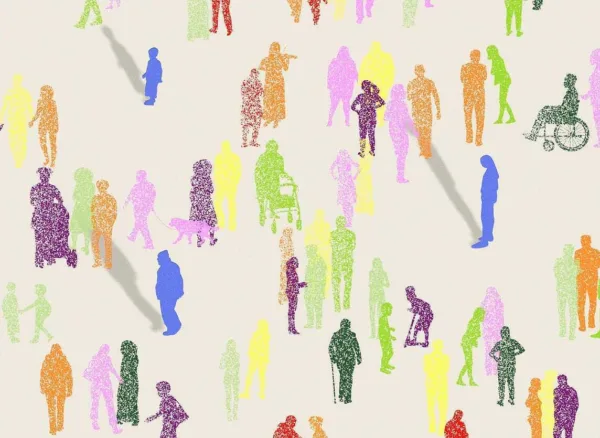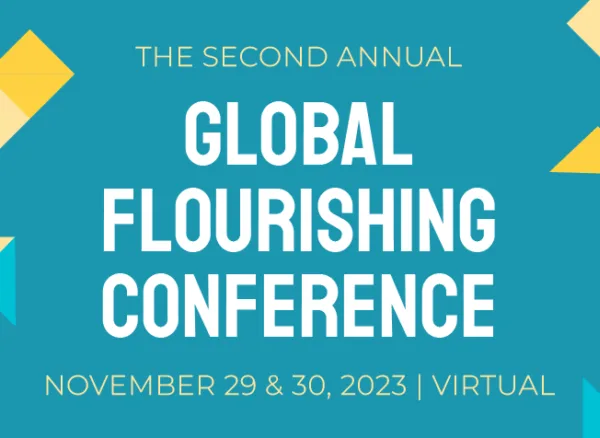Menu

This post is the fifth in a series from the 11 Awardees of the Templeton World Charity Foundation's Grand Challenges for Human Flourishing. The Foundation is investing US $60 million to grow the field of human flourishing to encompass scientific research, practice, and policy. Check back as we launch further requests for proposals under this important rubric.
If you are here, you are like me—interested in big philosophical questions such as What is a good life? What is human flourishing? These are rather abstract questions. So, let's get a little more specific. Imagine you are almost done with your life, indeed on a deathbed. What would you say about your life? I know that is a tough one. What about a slightly modified version: What would you wish to say about your life?
OK, I hear Ed shouting his answer. “I had fun!” Oh, I hear Carol shouting her answer. “I made a difference!” Do I hear another? Oh yes, I hear Tim shouting: “What a journey! I had never expected it would turn out this way!”
To me, these are all great answers, which tell us about what a good life is. Ed clearly had a happy life. He enjoyed his life, did a lot of fun stuff. Carol, on the other hand, clearly had a meaningful life. She made contributions to society. Her life added up to something that is larger than herself. In the scientific study of well-being, researchers often consider happiness and meaning as two central pillars of a good life. There is no dispute about it. A person is said to have flourished if they were able to enjoy their life. A person is said to have flourished if they were able to make contributions to society.
But, are there any other forms of a good life, or human flourishing? That is the question my research team has been pondering over the last 6 years. Specifically, we look for examples of a good life that do not neatly fit in with happiness and meaning. In other words, if someone did not lead a happy life nor a meaningful life, is there any way this person could lead a good life?
We were not sure if we could find any examples like that because it is not at all clear whether anyone can have a good life without happiness or meaning… A long, 6-year story short, we did!
For example, Renée in the novel, The Elegance of the Hedgehog by Muriel Barbery, is a case in point. She was from a poor family, so did not get much education. She works as a concierge at a high-end apartment in Paris and is a widow living with her cat. She would not report high levels of happiness or meaning in life because she describes herself quite negatively such as “short, ugly, and plump” and “pointlessness of my existence.” However, she enjoys and appreciates great Russian novels, arts, and films. Renée might not be leading a happy life nor a meaningful life but does lead an aesthetic life, appreciating beauty and going through diverse experiences through arts. Is this not good life?
Another literary example is Goldmund in Hermann Hesse’s famous novel, Narcissus and Goldmund. Both of the characters is this book were young students at a cloister. Narcissus chose life within the cloister and led a deeply Aristotelian life of virtue and contemplation. In contrast, Goldmund could not stand the constrained and disciplined life within a cloister and led a life of vagabond being homeless, and almost being killed through his journey. At the end of the novel, Narcissus reflects upon his life and Goldmund’s and states: “seen from the point of view of the cloister, his own life was better, righter, steadier, more orderly, more exemplary. It was a life of order and strict service, an unending sacrifice, a constantly renewed striving for clarity and justice. It was much purer, much better than the life of an artist, vagrant, and seducer of women. But seen from above, with God’s eyes—was this exemplary life of order and discipline…any better than Goldmund’s life? Had God not created him with senses and instincts, with blood-colored darknesses, with the capacity for sin, lust, and despair?”
Renée’s and Goldmund’s lives show that they might not have had material comforts nor stable relationships with others. It is hard to say whether they make a lot of societal contributions. Nevertheless, their lives are admirable to many readers. They have rich inner experiences. They have genuine empathy, and are authentic. They seem to know exactly who they are. There are numerous other examples such as James Joyce’s A Portrait of the Artist as a Young Man and Rabih Alameddine’s Unnecessary Woman. But, are there any real-life examples?
A great question! To find out, we examined obituaries. Specifically, we asked our undergraduate research assistants (who did not have any knowledge of our research on well-being, namely, were blind to our hypotheses) to read and code all The New York Times' obituaries published in June 2016. An obituary is a succinct summary of someone’s real life, after all. We found that some people had a really happy life, others led a meaningful life. Yet others led a “psychologically rich life,” a life full of interesting, diverse, and perspective-changing experiences. We replicated the original New York Times findings with a local Charlottesville newspaper’s obituaries as well as Singaporean newspaper’s. Our paper published in Psychological Review has excerpts from the obituaries.
Our research shows that a happy life, a meaningful life, and a psychologically rich life are related, but distinct. That is, there are at least three ways to lead a good life. To be clear, we are NOT saying that a happy life and a meaningful life are not enough. They are good lives. What we are saying is that some people seek a psychologically rich life rather than a happy life or a meaningful life and that a psychologically rich life is another form of a good life. What kind of life do you want to have—a happy, a meaningful, or a psychologically rich life? That is the question for now.
Shigehiro Oishi, Ph.D is a Professor of Psychology at the University of Virginia. Oishi's team is working to radically expand the conceptual space of a good life. Their research aims to move beyond the current hedonic vs. eudaimonic dichotomy to include a psychologically rich life, or a life full of diverse interesting experiences.



